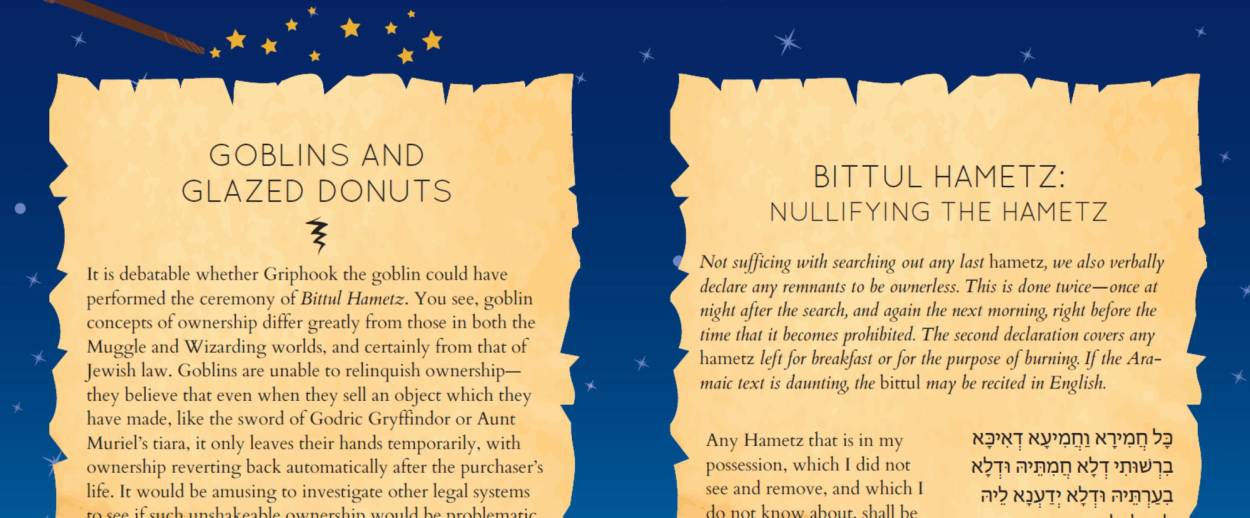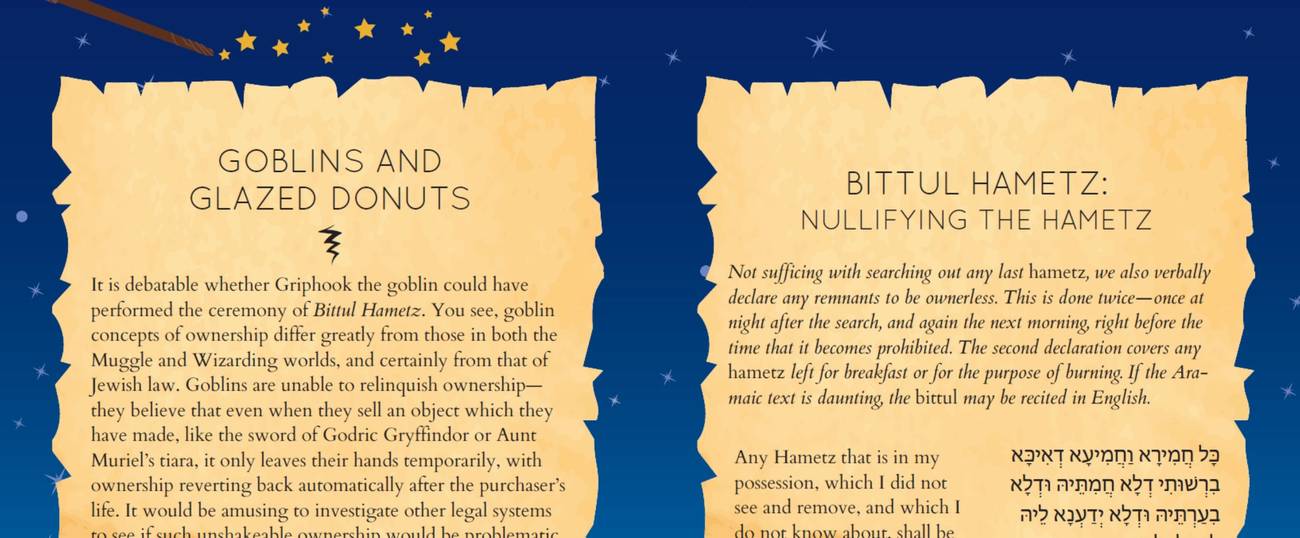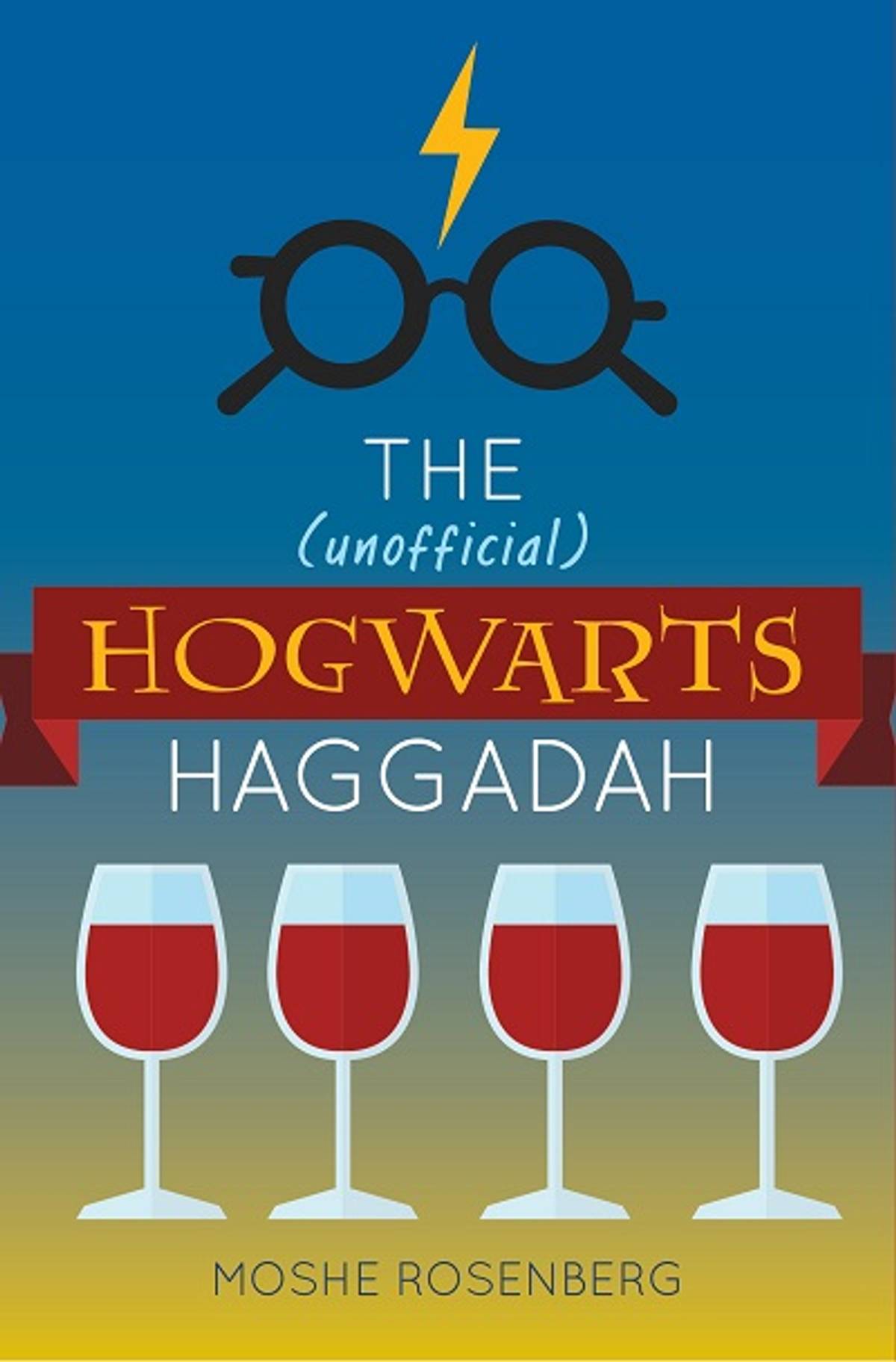From The Unofficial Hogwarts Haggadah: What Harry Potter and Passover Teach Us About Wealth and Class
For both Rowling and the rabbis, our relationship to wealth—not our accumulation of it—is what determines our moral merit




As of this writing, the #1 bestselling Haggadah on Amazon.com is not Dave Barry’s newly released take on the Jewish classic, but a book entitled The Unofficial Hogwarts Haggadah. What could Harry Potter possibly have to teach us about Passover and the Jewish tradition—and vice versa? Quite a lot, argues the book’s author. Test the proposition for yourself with this exclusive excerpt, a short essay titled, “From the Bread of Poverty to Great Wealth.”

We open the Seder by pointing to the Matzah and remembering that it represents the poverty we experienced in Egypt. But when we ate the same Matzah on our way out of servitude, it no longer represented poverty, but freedom. We recount how this reversal of fortune was foretold to our ancestor Abraham, when God told him of the impending slavery, but added that we would ultimately leave “with great wealth.” Thus our deliverance is poised not only between slavery and freedom, but between poverty and wealth, as well.
The contrast between rich and poor is a recurring theme in the Harry Potter novels too. Without calling him poor, the first book makes it clear that Harry’s lot at the Dursleys is one of penury. Dependent upon his stingy relatives for every scrap of food and every stitch of clothing, Harry is keenly aware of his impoverished state compared to that of Dudley. The comparison of their birthday presents makes that even clearer, when Petunia labors to buy Dudley his 37th birthday present, while Harry’s gift is Uncle Vernon’s old socks. In this way, Harry’s emergence from the Muggle world to the Wizarding world is both a movement from slavery to freedom and from poverty to the wealth his parents left him in Gringotts Bank.
Both the Jewish tradition and the Harry Potter novels encourage us to consider the proper uses of wealth and to examine what true wealth really is. Harry and Draco Malfoy are both wealthy, but relate to their wealth in totally different ways. To Draco, money confers status and grants the wealthy the right to feel superior to those less well heeled. His constant digs at Ron revolve around the Weasleys’ modest means. He clearly inherited this attitude from his parents, who think nothing of buying Nimbus 2001 brooms for Draco’s entire team to secure the position of seeker for their son, and whose contributions to worthy causes elevate him above suspicion in the politically driven mind of Minister of Magic Cornelius Fudge. When Harry relates that Lucius Malfoy was one of the Death Eaters who joined the reborn Voldemort in the cemetery at the end of Book 4, Fudge replies, “Old wizarding family … contributions to all the right causes.” Harry, on the other hand, sees his money as a tool for doing good. He gives his Tri-Wizard tournament winnings to Fred and George Weasley as seed money for their joke shop. He buys Ron a pair of omni-oculars for the Quiddich World Cup. His generosity is reined in only by his desire not to embarrass those who might not want to accept charity.
Harry realizes from the start that it is the Weasleys, who have no money, who possess true wealth in the love they bear each other and which they share with Wizard and Muggle alike. He treasures the sweater he gets from Mrs. Weasley not for its intrinsic value of fashion statement, but for its symbolic induction of him into the family. He knows from the first week, when Draco offers to introduce him to the “the right sort” of friends, that the Weasleys belongs to that exclusive club, while the Malfoys do not.
Judaism has always championed the instrumental, rather than the intrinsic value of money. In a famous play on words, the Midrash insists that tithing will increase a person’s worth, rather than reducing it. It reads the verse “Aser te’aser” (“You shall tithe”) as “Aser, bishvil shetitasher” (“Tithe, in order that you become wealthy”). The Mishna says that the truly wealthy person is the one who is content with his lot. And even the “great wealth” promised by God to the Children of Israel is understood by many commentaries to refer not to the spoils of Egypt, but the treasure of the Torah, which was given in the wilderness three months after the Exodus.
Moshe Rosenberg serves as Rav of Congregation Etz Chaim of Kew Gardens Hills and teaches Judaic Studies at the SAR Academy in New York. He is the author of Morality for Muggles: Ethics in the Bible and the World of Harry Potter and The Unofficial Hogwarts Haggadah.